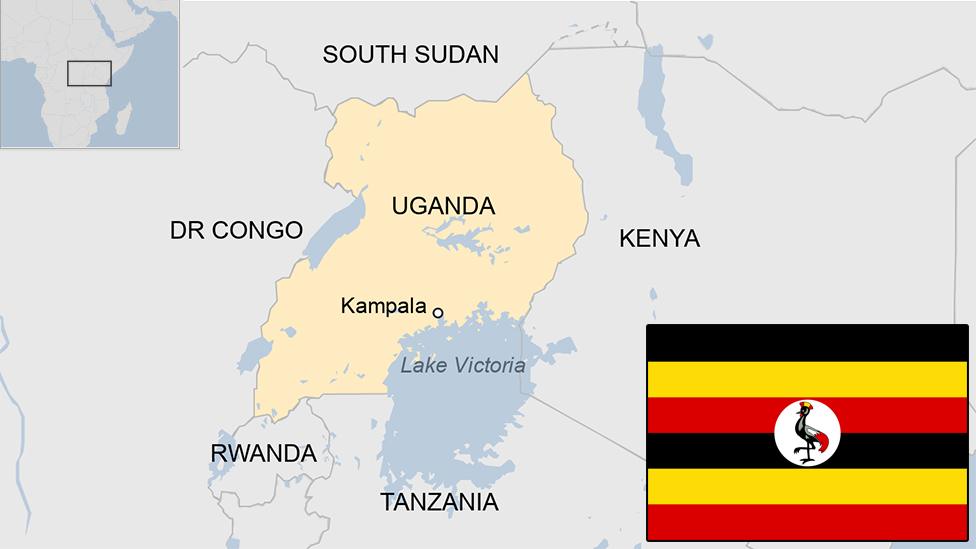Anger at Uganda's tax on social media
- Published
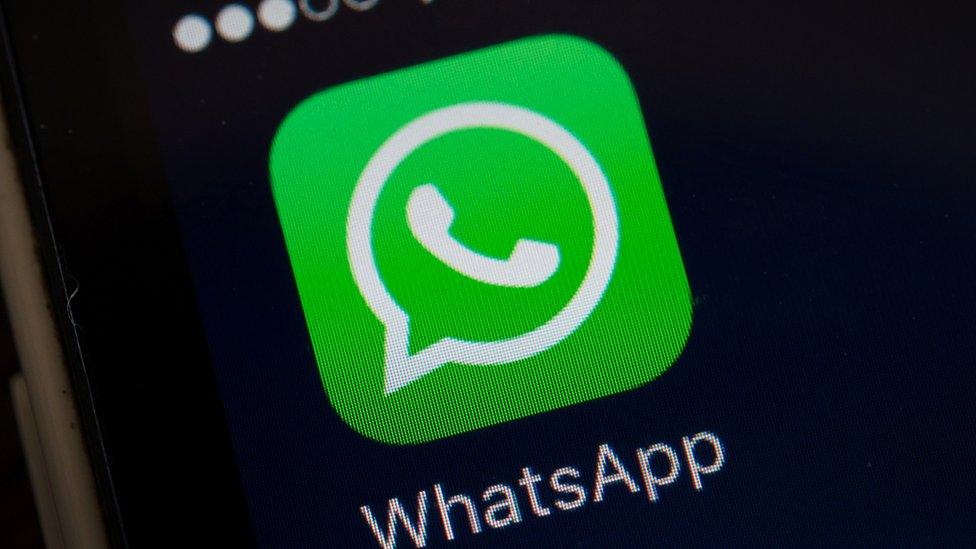
The revenue raised is also intended to help pay off of the country's growing national debt
Ugandans have taken to Twitter to complain about the imposition of a 200 Uganda shilling [$0.05, £0.04] tax on the use of social media.
Some have also used Virtual Private Networks (VPN) to get around paying.
Parliament approved the tax in May after President Yoweri Museveni had pushed for the changes, arguing that social media encouraged gossip.
But some argue that it is a way of restricting critical comments about the government.
Why has the government done this?
President Museveni has spoken out about people using social media to spread gossip which he described as "opinions, prejudices, insults [and] friendly chats".
In a letter to the finance minister in March, Mr Museveni said a social media tax could boost government revenue, and so reduce borrowing and aid money.
He added that he did not back a tax on the internet in general as this would affect its use for "educational, research or reference purposes".
Uganda's ICT Minister Frank Tumwebaze has also defended the tax, saying that the money raised will be used to "invest in more broadband infrastructure", external.
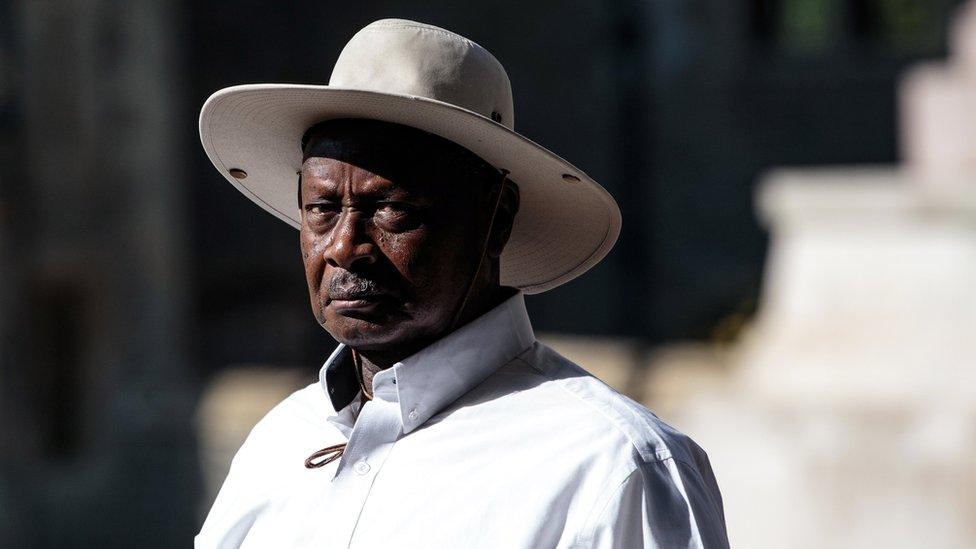
President Museveni says there will not be a tax on internet data as it is useful for education
What has the reaction been?
Many say the tax is politically useful as social media is often used for critical commentary about the government, reports the BBC's Catherine Byaruhanga in the capital, Kampala.
People on Twitter are complaining that their freedom of speech is being restricted.
Allow X content?
This article contains content provided by X. We ask for your permission before anything is loaded, as they may be using cookies and other technologies. You may want to read X’s cookie policy, external and privacy policy, external before accepting. To view this content choose ‘accept and continue’.
Allow X content?
This article contains content provided by X. We ask for your permission before anything is loaded, as they may be using cookies and other technologies. You may want to read X’s cookie policy, external and privacy policy, external before accepting. To view this content choose ‘accept and continue’.
The government has form in this area. In February 2016, during the presidential and parliamentary elections, it cut off access to social media for security reasons. But critics argued that it restricted the ability to monitor the vote.
Ugandan internet rights activist Juliet Nanfuka is concerned that the government's move could be copied elsewhere. "When one country does one thing other countries follow suit," she says.
Can Ugandans afford it?
Two hundred Uganda shillings may not sound a lot, but activists argue that it represents a significant slice of what poorer people are paying for getting online.
Social media mobile phone bundles, costing 500 or 1,000 shillings have become increasingly popular, so the new tax can represent up to 40% of that cost.
As a result, some companies are withdrawing these offers, according to Ms Nanfuka.
Also, some are arguing that it is not the amount that the government is asking for but rather the principle of taxing social media that is the problem.
Allow X content?
This article contains content provided by X. We ask for your permission before anything is loaded, as they may be using cookies and other technologies. You may want to read X’s cookie policy, external and privacy policy, external before accepting. To view this content choose ‘accept and continue’.
How do you pay?
The tax targets the use of what are described as Over The Top (OTT) services, which include Facebook, WhatsApp and Twitter.
These are services which offer "voice and messaging over the internet", according to a statement from the telecom companies.
Users are asked to make an electronic payment before they can access the sites.
Are people trying to avoid the tax?
Some Ugandans are using a VPN connection, which makes it appear as if you're accessing the internet from another country, where the tax is not imposed.
But this can use more data and so could end up costing more money than the tax itself.
BestVPN.com, which advises people on what services to use, has reported a 1,600% increase in traffic to its website from Uganda on the day that the tax was introduced.
- Published31 May 2018
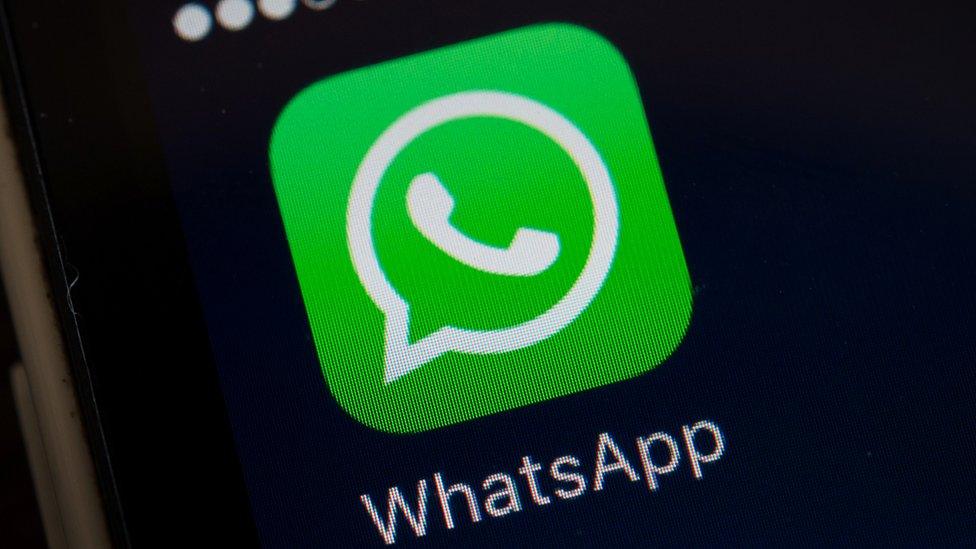
- Published16 May 2018
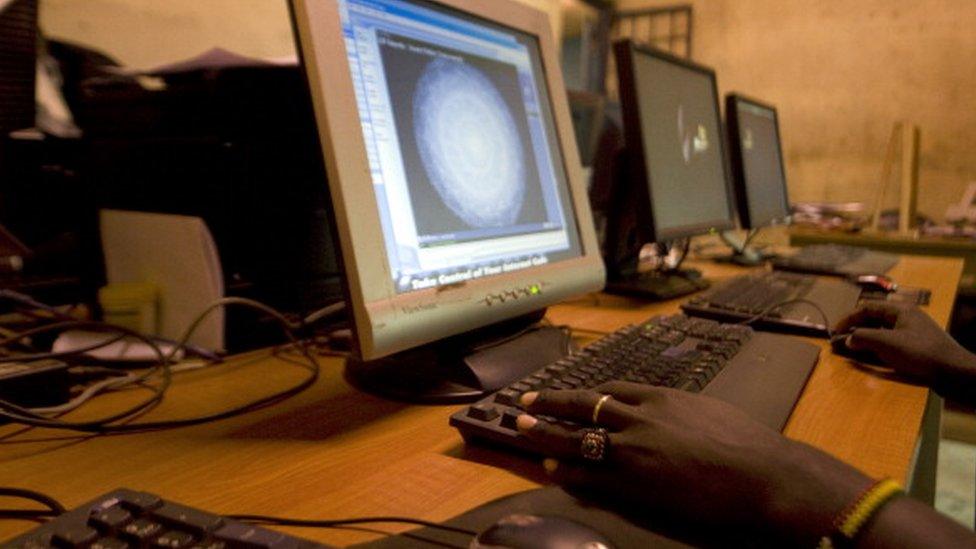
- Published26 April 2023
